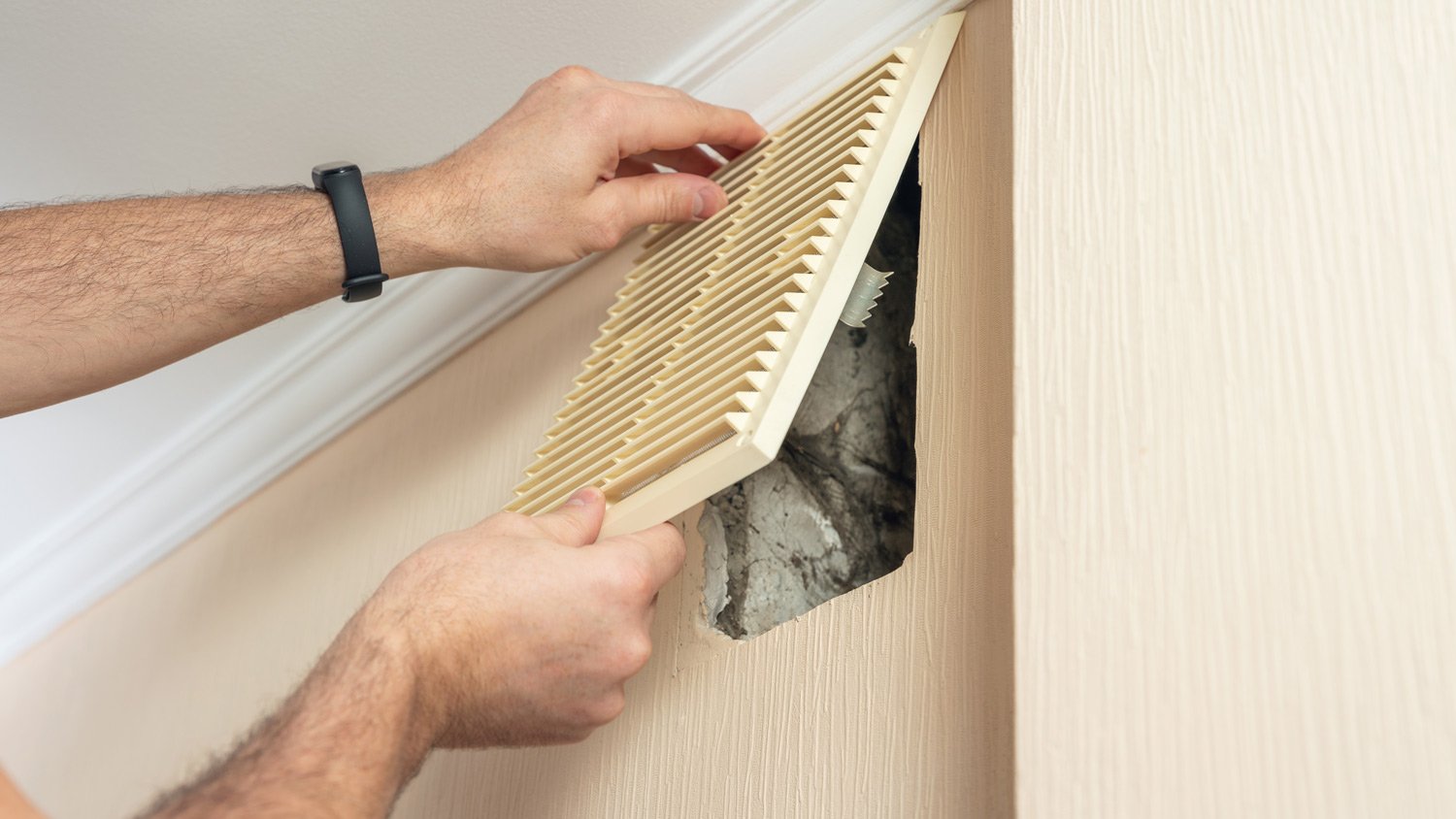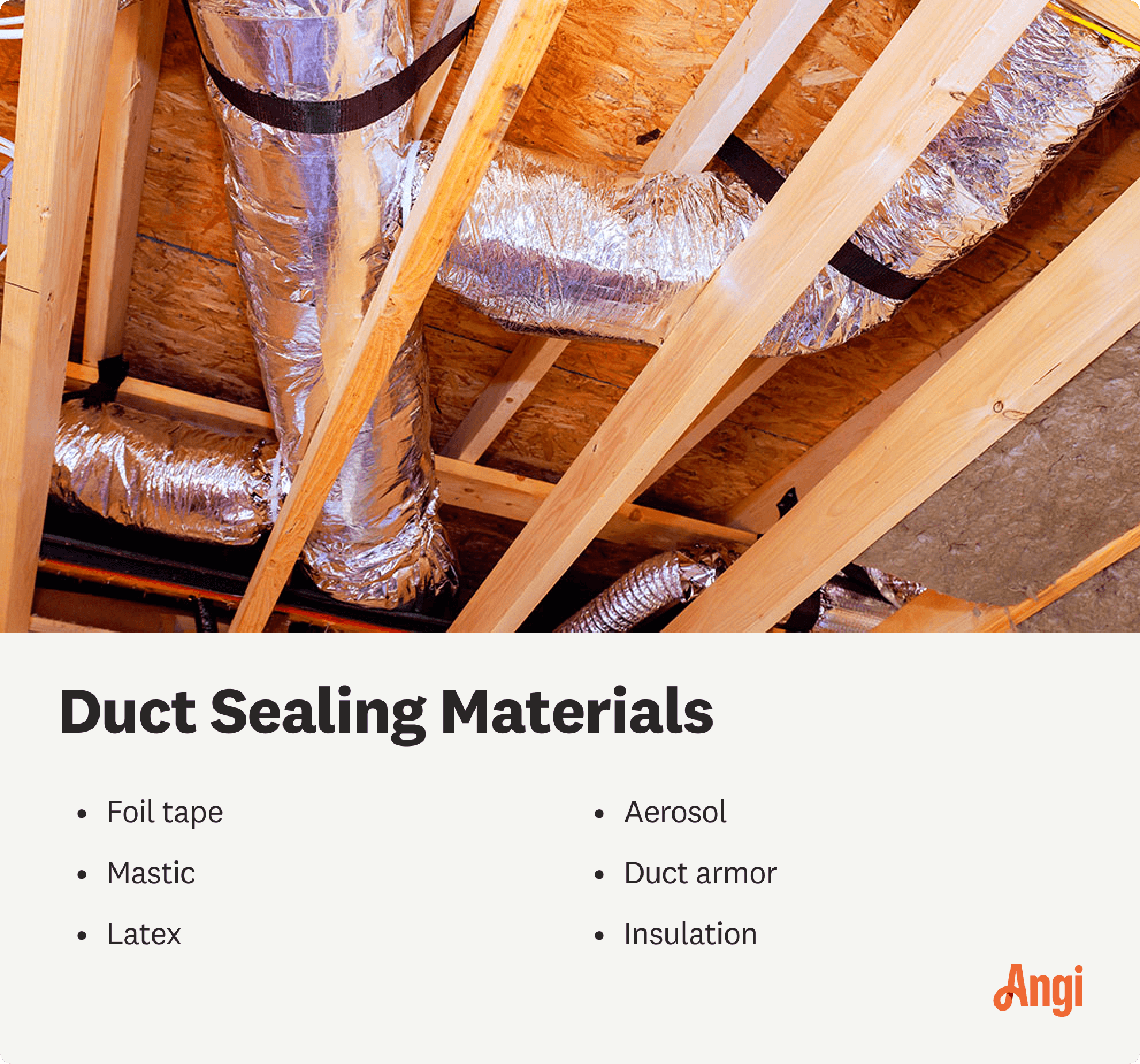Why Is There Rust in My Air Ducts? Common Causes and How to Handle It
Don’t let rusty air ducts tarnish your home


Rust in air ducts can shorten their lifespan, so you’ll have to replace them sooner.
Regular maintenance and DIY fixes can help remove minor rust from your home’s ductwork.
A pro can advise you on the best action to take if your ductwork is significantly rusty.
Your HVAC system keeps your home at a comfortable temperature year-round. But if the metal ducts are exposed to water, they can develop rust. Rust in air ducts isn’t a cause for concern as long as you catch it early; left untreated, it can break down your ducts, shortening their lives and necessitating replacement sooner. This guide will teach you how to recognize rust, how to deal with rust in air ducts, and when to call a pro.
1. Get an Inspection
If you suspect you have rust in your home’s air ducts, schedule an HVAC inspection. A pro will check out the central unit and the ducts for mechanical issues that need repairs. For example, a frozen evaporator coil on an AC unit can cause water to leak into the ducts, causing rust. A pro can inspect the evaporator coil and repair or replace it to prevent the water leak. Expect to pay an average of $300 in HVAC inspection costs.
2. Clean the Ducts
Cleaning your air ducts will allow you to evaluate the extent of the rust in the ducts. If the damage is minor, you can often get away with a thorough cleaning to remove rust from air ducts. However, if there’s significant rust damage in the ducts, you might need an air duct cleaning professional near you to replace parts of the ductwork. Either way, starting with clean ducts will let you plan the appropriate steps to deal with the rust.
3. Seal Leaks

If your air ducts aren’t properly sealed, moisture can get into the ductwork and cause rusting. Check your ductwork for any leaks where air can get in. If you find a leak, seal it with foil tape or duct mastic so it’s airtight. If you’re unsure how to seal the ducts, contact an HVAC pro to tackle the project.
4. Install a Dehumidifier
If you live in a humid climate, your relative indoor humidity level could be above the maximum EPA-recommended level of 30% to 50%. High humidity levels in a home can cause moisture problems, including rust, mold, and mildew. A dehumidifier can help maintain a healthy humidity level in your home. Installing a whole-house dehumidifier costs $1,300 to $2,800 but could save you money in the long run.
5. Insulate the Ducts
A lack of insulation can cause condensation on the ductwork exterior, leading to rust. Insulating exposed ductwork is an easy DIY that can make a big difference. Simply wrap the duct’s exterior in rolled insulation and secure it with foil tape to keep it snug. You can also hire an insulation pro to do this job.
Signs of Rust in Air Vents
It may go without saying, but the most obvious sign of rust in air ducts is visible evidence. You might see rust on the air vents in one or more rooms or when you look through the vent into the duct.
Other signs are less clear. Since you can’t see all the way through your ductwork with the naked eye, you’ll need to look for evidence of water in the ducts. Listen carefully for any dripping sounds that suggest a potential rust-causing leak. Check for condensation near the HVAC unit’s evaporator coil that could be entering the ducts. And if you’re not sure whether you have rust in the ducts, schedule an HVAC duct inspection so a professional can look for signs of rust and other potential problems.
When to Call a Pro

Minor rust damage in HVAC ductwork can be addressed with some simple DIY fixes, like sealing small leaks or adding insulation to the ducts’ exterior. However, you need a professional to address significant rust damage on your home’s air ducts. Here are some signs that rust in your air ducts is beyond your DIY skills:
Holes or gaps in the ductwork caused by significant rust
A musty smell that suggests the presence of mold as well as rust
The presence of water in the ducts
A lack of proper insulation on inaccessible ductwork
Evidence of a water leak in your HVAC unit
Frequently Asked Questions
Yes, rust in ductwork is bad if it’s left untreated. Mild rust can be removed before it causes any significant damage. However, if you ignore rust, it can affect the structural integrity of the ductwork, and you’ll eventually need to replace it entirely. In addition, rust-causing moisture in ducts can also cause mold growth.
You can partially clean the ductwork yourself using a dryer vent brush and a high-powered vacuum cleaner. However, without the proper equipment, you won’t be able to reach deep inside the ductwork for a thorough cleaning. A professional air duct cleaning company can remove all the dust and debris from your ductwork and address rust before it becomes a more significant issue.
Homeowners insurance may cover ductwork if a covered peril, like vandalism, fire, or a windstorm, causes the damage. However, it won’t cover damage caused by homeowner neglect or regular wear and tear. Since rust is often a byproduct of neglect, repairing it likely won’t be covered. And insurance will never cover maintenance tasks like air duct cleaning or HVAC service.















